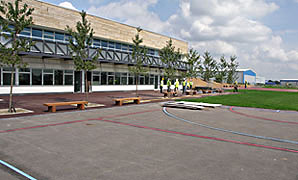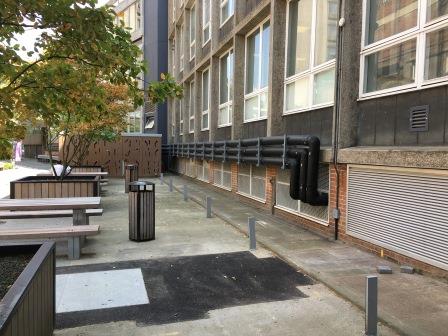
Net Zero District Heating systems are available now
There is no reason to delay if we want to achieve Net Zero now from district heating and cooling systems. With falling grid carbon factors and the use of heat transfer we can approach Net Zero heating already. With green electricity we can achieve Net Zero heating now.

Burning hydrogen for low carbon heating
There is a lot of talk about the merits of burning hydrogen for heating. This has some merits for low carbon heating, but there are some significant costs, safety issues and health issues.
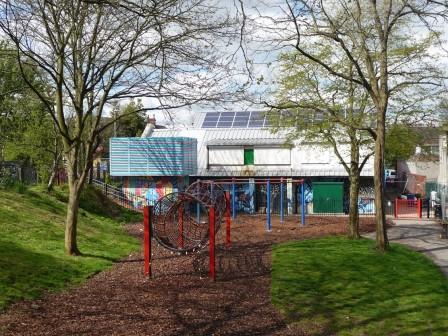
Advantages of District Heating
There is an alternative form of district heating which neatly resolves all the limitations of CHP based district heat networks:
district heating based on heat pumps.
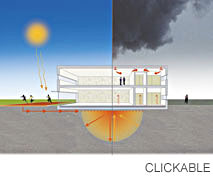
Decarbonising Heating
The grid is decarbonising each year. The electrification of heat is advancing. Do you know the best route to decarbonising heating?
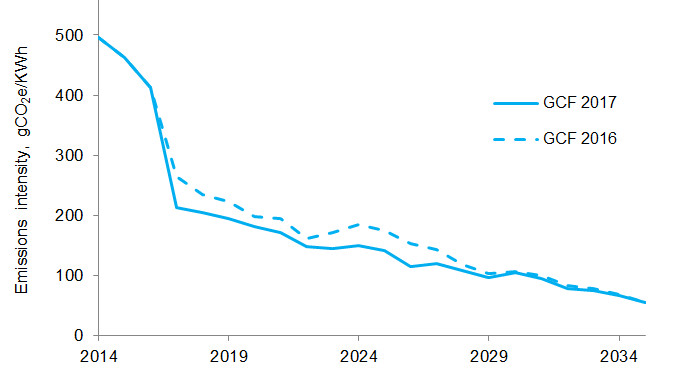
Decarbonising the Grid
In order to meet international obligations the government is arranging for the decarbonisation of electricity generation for the national grid. This decarbonising of the grid is encouraging the electrification of heat.
Interseasonal Heat Storage
The key to balancing supply and demand on the grid is to be found in electricity storage and Interseasonal Heat Storage.
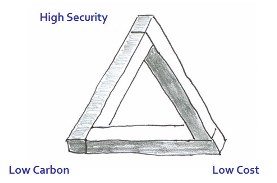
Energy Trilemma
Policy makers are concerned about the Energy Trilemma: they need to resolve the needs for
- high security of supply
- low carbon emissions
- and low cost of energy.
Electrification of Heat
In order to reduce carbon emissions from heating we need to find alternatives to combustion. This implies the Electrification of Heat which in turn means using heat pumps for heat transfer and the ground for thermal energy storage.
Demand Side Response
Businesses can save money if they are prepared to be flexible in the timing of their demand for electricity: Demand Response.
The Internet of Heat
Internet of Heat combines communication and control technologies with heat transfer to reduce carbon emissions from heating by recycling heat. This also contributes to reducing air pollution.

Sustainable Energy - without hot air
David MacKay has published Sustainable Energy - without the hot air. This wide ranging book aims to bring this large subject down to manageable units: KWh per person per day. He examines our uses of energy and the potential source of renewable energy and comes to some interesting conclusions.
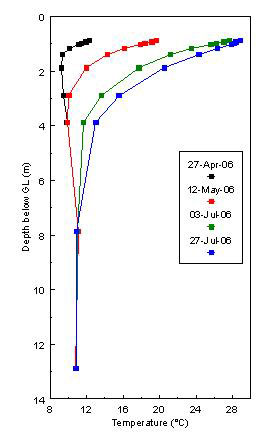
TRL Report on IHT
Could a system used to heat buildings change the face of the highways' winter service? Derek Carder of TRL explains a project to recover solar energy from roads in summer to keep those roads free of ice in winter. Report on IHT by TRL appeared in The Surveyor in May 2008.
Natural Cooling
Natural Cooling is an elegant alternative to the extravagant costs of air conditioning. Natural Cooling.
Merton Rules Apply
The London Borough of Merton has just opened the first purpose built Intergenerational Centre. This article, first published in the April edition of GeoDrilling International magazine, recounts the challenge facing Merton in complying with its own "Merton Rule". Merton Rules Apply.
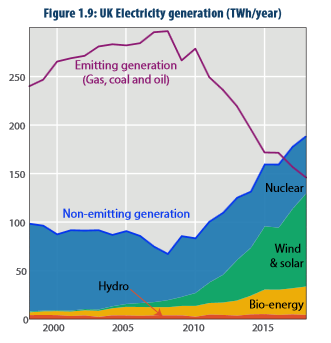
Absolute Zero Report highlights technologies available now
The report published by distinguished academics asserts that we should adopt technologies that are available now, rather than dream about what may become available in the future: Absolute Zero Report.
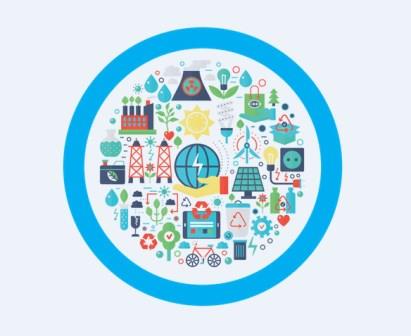
Getting serious about Net Zero
We need to get serious about net zero and limit our carbon emissions. The route to lower carbon emissions is to stop burning fuels for heating and transport: there are alternatives.
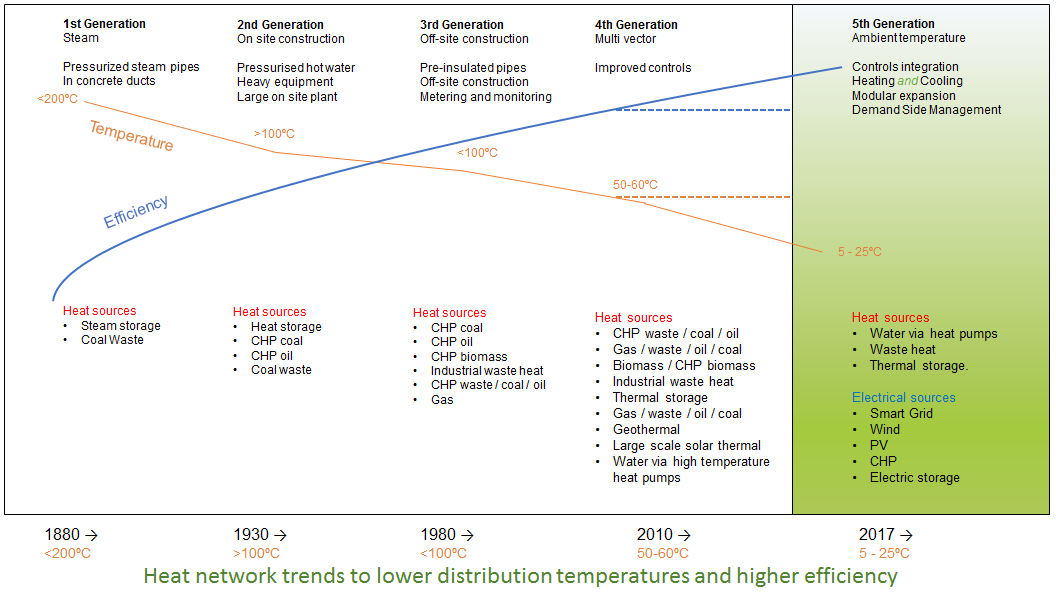
Fifth Generation District Heating
New fifth generation district heating avoids heat losses to the ground by circulating water to buildings at near ground temperature – this allows heat pumps in each building to extract heat, if they need heating, or reject heat, if they need cooling. Buildings which need heat benefit from those which reject heat to the heat sharing network and vice versa.
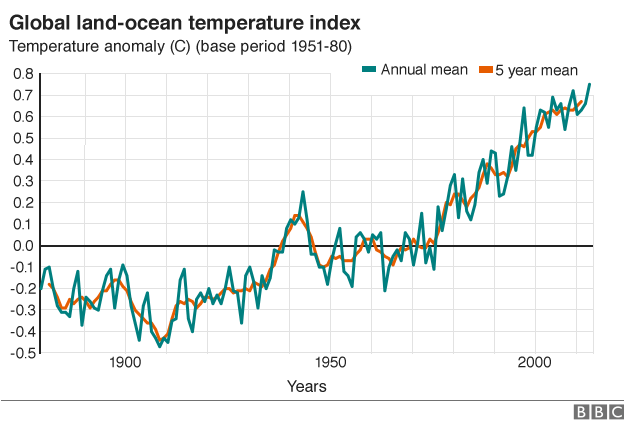
Decarbonising Cooling
Up to 10% of UK electricity is used to provide air conditioning and cooling. Use of roof mounted chillers to waste heat to the atmosphere is very inefficient. There is a much better route to decarbonise cooling.
Internet of Things
Connecting heat pumps to the National Grid via the Internet of Things enables Demand Side Response, load balancing and saving costs: Internet of Things – heat pump controls.
Recycle heat from summer to winter
Renewable energy technologies can be combined in order to balance the merits of solar thermal collectors with ground source energy using the critical link of Seasonal Thermal Storage. The whole is greater than the sum of the parts. See Integrating Renewable Technologies to recycle heat and achieve energy efficiency in buildings.
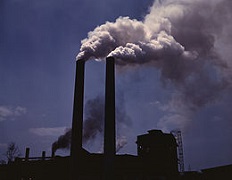
Air Quality
All but two of London’s boroughs are exceeding EU limits for Nitrogen Dioxide, a toxic gas linked to respiratory problems. Air Quality is becoming an increasing concern in urban planning. There is a solution for reducing air pollution.
Heat Pumps in District Heating
Heat Pumps in District Heating, published by DECC in February 2016, recognises the value of using heat pumps in District Heating to lower carbon emissions in place of central gas boilers or gas based CHP: Heat Pumps in District Heating.
CP1 Heat Networks: a Code of Practice
In response to DECC's desire to see an increase in the use of heat networks in order to reduce carbon emissions and reliance on imported fossil fuels, CIBSE has produced a Heat Networks: Code of Practice to encourage high standards. What are the implications?
CP2 Surface Water Source Heat Pumps
In response to DECC's desire to see an increase in the transfer of heat from open water to reduce carbon emissions, CIBSE has produced a Surface Water Source Heat Pumps: Code of Practice to encourage a high standard of installations.
Air Conditioning is expensive
Air conditioning is extravagant when a natural alternative exists. There is another way to Keep your Cool.

Energy Hub Objectives
The EU Energy Hub Project aims to maximise the use of renewable energy within local districts by using district heating in conjunction with smart energy control systems and thermal energy storage. ICAX, which is one of the 16 partners in the E-Hub Project, also focusses on Seasonal Thermal Energy Storage and sophisticated control systems to balance heating and cooling demands within buildings across the four seasons: Energy Hub Objectives.
Heat Storage can be used to Recycle Heat
The July 2012 edition of Energy World published by the Energy Institute includes a feature on Heat Storage. Generating heat is easy in summer, so why not store this for extraction in winter when it's needed? Edward Thompson reports on a technology which does just that.
Recycling Thermal Energy
It is easy to recycle plastic bags from supermarkets. How can supermarkets recycle thermal energy? Recycling Thermal Energy.

